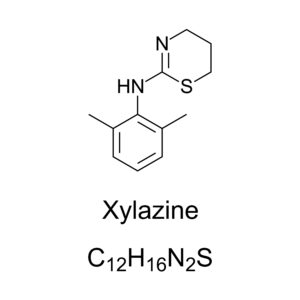Our Blog

Current Data on the Burden of Long COVID Symptoms
Long COVID, also referred to as post-acute sequelae of SARS-CoV-2 infection (PASC), has emerged as a significant public health concern since the onset of the

Indications for Intravenous Albumin
Intravenous albumin is a concentrated solution of human serum albumin, the most abundant protein in blood plasma. Its primary physiological roles include maintaining oncotic pressure,

Regional Anesthesia for Orthopedic Surgery in Upper Extremities
Orthopedic surgery is among the fastest growing surgical specialties, with over 22 million orthopedic surgical procedures performed worldwide in 2017.1 Regional anesthesia has become a

Gas Induction of General Anesthesia: An Overview
General anesthesia is used to render a patient unconscious throughout a surgical or medical procedure. Induction of general anesthesia can be achieved using either intravenous

Which Direction Should an IV Face?
Inserting a peripheral intravenous (IV) cannula is a routine clinical task, yet small details during placement can impact its function, comfort, and longevity. One such

How Does A Laryngeal Mask Airway (LMA) Work?
A laryngeal mask airway is a medical device used to keep a person’s airway open during anesthesia or unconsciousness. It plays a crucial role in

Clinical Trials in Anesthesia
Clinical trials play a crucial role in advancing anesthesia practice, ensuring patient safety, and improving perioperative outcomes. These trials follow a structured system involving different

AI Outperforms Doctors in Key Tasks: Rethinking the Future of Medicine
Recent studies have revealed that artificial intelligence (AI) systems are often more effective than human doctors in certain medical tasks, particularly in interpreting medical scans

Using Machine Learning to Repurpose Existing Medications
The process of drug discovery is notoriously time-consuming and expensive, often requiring over a decade of research and billions of dollars to bring a new

Hemodynamic Stability of Propofol
Propofol, a commonly used intravenous anesthetic agent, is an integral part of modern anesthesia practice due to its rapid onset, short duration of action, and

Nutritional Support in the Critical Care Setting
Nutritional support is a cornerstone of care in the critical care setting, playing a vital role in the recovery and overall outcomes of critically ill

How to Avoid Intraoperative Acute Kidney Injury
Acute kidney injury (AKI) is a serious complication that can arise during surgery, significantly increasing morbidity, mortality, and healthcare costs. Defined by a sudden decline

Peripheral Nerve Stimulation for Perioperative Pain Management
Peripheral nerve stimulation (PNS) has emerged as a promising technique for managing perioperative pain. As the healthcare community continues to seek alternatives to opioid-based pain

What is Xylazine?
Xylazine, a substance known for its sedative, analgesic, and muscle relaxant properties, is increasingly discussed in both veterinary and human medicine contexts. Originally developed as

Using AI for Drug Repurposing
Drug repurposing, also known as drug repositioning, is a strategy in pharmaceutical development that involves identifying new uses for existing drugs. This approach can significantly

Clevedipine in the Perioperative Setting
Clevidipine is a highly selective, short-acting intravenous dihydropyridine calcium channel blocker that has become a cornerstone in managing perioperative hypertension. Used extensively in the perioperative

Management of Cardiac Arrhythmias During the Peripartum Period
The peripartum period, encompassing the final weeks of pregnancy and the time shortly after delivery, poses unique challenges for the management of cardiac arrhythmias. Changes